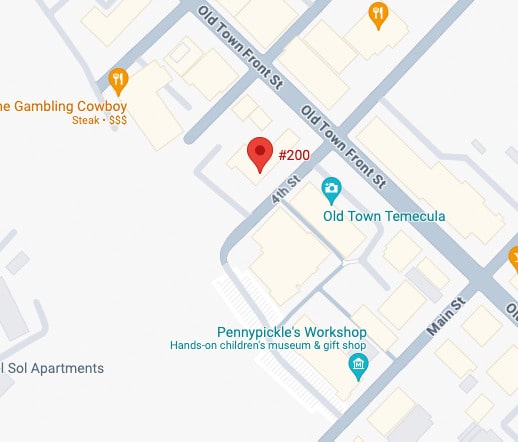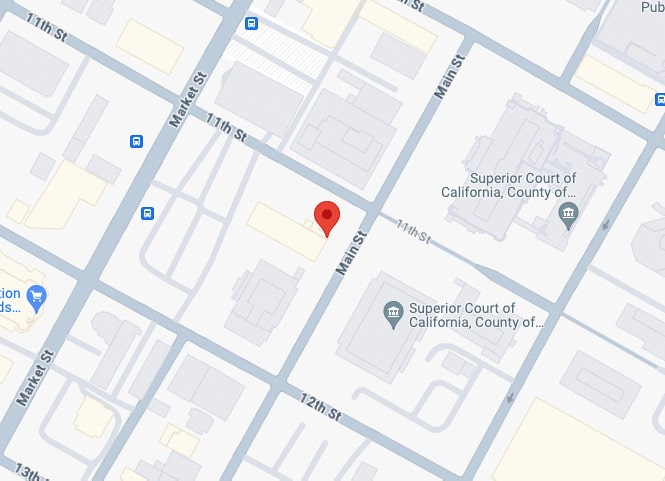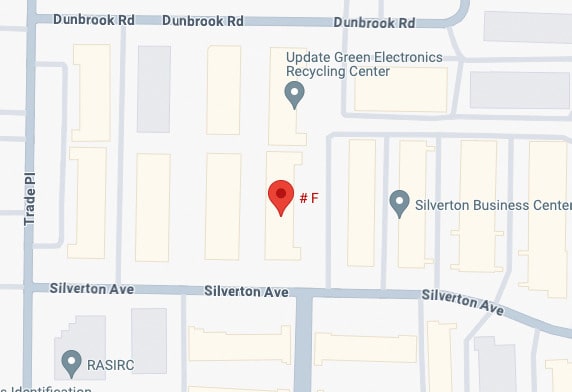Bail bonds are a valuable resource for individuals facing arrest. They allow them to secure their release during legal proceedings. After an arrest and booking, a judge determines the bail amount. This sum acts as the financial guarantee for court appearances.
However, the financial burden of bail can be challenging. Bail bondsmen offer a solution by charging a non-refundable fee, typically around 10% of the bail amount, to post the bail with the court on behalf of the defendant. This system provides a means for individuals to regain their freedom, continue their daily lives, and support their families while navigating the legal process.
If you or a loved one is arrested in Cardiff-by-the-Sea, rely on Justice Bail Bonds to secure your release from custody.
What Follows After an Arrest?
After your arrest, you will be arraigned.
At this early stage in a criminal case, the defendant is informed of the charges against them and is asked to enter a plea. The available pleas are:
- Guilty — Admitting to the charges.
- Not guilty — Contesting the charges and opting for a trial or.
- No contest — Similar to guilty but without an admission of guilt.
This phase does not address bail.
Bail is addressed at the bail hearing. This hearing is a separate proceeding that usually follows the arraignment. Its primary purpose is to determine whether the defendant should be released from custody while awaiting legal proceedings. The focus here is on bail conditions and whether the defendant is a flight risk or a danger to the community. It does not involve the defendant entering a plea.
Bail Hearings
Judges make crucial decisions at a bail hearing. They decide:
- Whether an arrested individual should be granted bail, allowing them to be released from custody while awaiting trial or other legal proceedings, or
- Whether they should remain in jail until their case is resolved.
In California, each county has a bail schedule. It is a guideline for judges, law enforcement, and court officials when determining bail amounts for various criminal offenses. This schedule outlines recommended bail amounts based on the type of crime involved. The schedule ensures a degree of consistency and transparency in the bail-setting process.
While the bail schedule provides valuable guidance, it is not an inflexible rule. Judges maintain discretion and could deviate from the recommended bail amounts on a case-by-case basis, considering several factors. These factors include:
- The defendant's criminal history.
- Potential flight risk.
- Ties to the community, and
- The specific circumstances surrounding the alleged offense.
Judges exercise their discretion to carefully evaluate the unique aspects of each case and make appropriate adjustments to bail amounts. Doing so ensures that justice is served while adhering to the principles of fairness and individualized assessment.
In certain situations, a judge could choose to deny bail. This results in the defendant's continued custody while awaiting trial or other legal proceedings. Bail denial is usually employed when the judge deems that releasing the defendant could present:
- A substantial flight risk or
- Pose a danger to the community.
This measure is primarily taken to safeguard the community's safety and guarantee the defendant's attendance at their court hearings. Denying bail is more common in cases involving severe crimes, like violent felonies, or when there is compelling evidence indicating that the defendant could not adhere to the conditions of release.
What if I Cannot Afford to Post Bail?
In the criminal justice system, individuals without the financial means to post bail are not automatically incarcerated. The primary objective is to prevent unnecessary pretrial detention solely based on financial constraints. The overarching aim is to uphold the presumption of innocence for all individuals, irrespective of their financial resources, and to promote fairness and justice in the pretrial process.
The Humphrey hearing serves as a vital mechanism for addressing the circumstances of individuals who cannot afford bail. Its core purpose is to assess whether an individual should be held in custody or released while they await trial. The assessment’s primary focus is on the defendant’s financial situation.
In the course of a Humphrey hearing, a judge examines several key factors:
- Financial resources — The court scrutinizes the defendant's capacity to post bail and assesses whether his/her financial limitations are the exclusive reason for possible detention.
- Nature of the alleged offense — The gravity and nature of the crime are weighed to determine if the defendant presents a potential risk to public safety.
- Defendant's background — The judge considers the defendant's criminal history, ties to the community, and other pertinent personal factors that could impact the decision.
- Public and victim safety — The overarching concern is the welfare of the public and potential victims. The court strives to balance the defendant's right to liberty with the need to protect public safety.
Release on Your Own Recognizance
Individuals can be released from custody without the obligation to post bail. This practice is known as 'release on own recognizance' or O.R. release. It allows people to regain their freedom without needing a monetary bail payment. Instead, they are released based on their commitment to attending all court hearings as scheduled and adhering to any additional court-imposed conditions.
O.R. release is typically granted to individuals with:
- Strong community ties.
- A low risk of fleeing, and
- A minimal threat to public safety.
Bail Reduction
Courts have the authority to reduce bail amounts in specific situations. When a defendant or their legal representative believes that the court's established bail amount is excessively high and creates financial hardship, they can request a bail reduction. This request typically involves filing a formal motion in court, during which the defendant's attorney will present arguments and evidence to support the necessity of a lower bail amount.
The court considers multiple factors, including:
- The defendant's ties to the community.
- The nature of the alleged offense.
- The defendant's criminal history and
- Their financial capability.
If the court determines that the existing bail amount is unreasonably high, it could lower it to a more manageable level. This then makes it easier for the defendant's ability to secure their release.
Courts are often hesitant to reduce bail for individuals facing charges related to violent or serious crimes due to concerns about public safety and the gravity of the alleged offenses. To ensure community safety and the defendant's appearance at court proceedings, the court may maintain higher bail amounts.
Bail amounts are typically constrained by the figures specified in the bail schedule unless there are substantial grounds or "good cause" for deviation. However, if compelling arguments and substantial evidence are presented to the court, indicating that a lower bail amount is warranted, the court could contemplate reducing bail below the scheduled amount.
The term "good cause" refers to convincing and justifiable reasons that could lead the court to consider lowering bail below the scheduled amount or making exceptions to the standard bail guidelines. Some instances of "good cause" that could merit a bail reduction include:
- Significant changes in the defendant's circumstances, like loss of employment, medical issues, or family emergencies. These circumstances hinder a defendant’s ability to meet the originally set bail.
- The introduction of new evidence not available at the initial bail setting — This could substantially impact the case or the defendant's guilt.
- When the bail amount appears disproportionately high compared to the nature of the alleged offense or the defendant's financial capacity.
- A demonstration by the defendant that they are not likely to flee and will attend all court proceedings, serving as "good cause" for a reduction.
- Strong connections to the community, like long-term residency, employment, family, or other factors indicating the defendant is not a flight risk.
- Factors that diminish the seriousness of the alleged offense, like self-defense or acting under duress, could be considered "good cause" for a bail reduction.
- If errors or inaccuracies exist in the original bail setting, these could serve as "good cause" for correction.
The court evaluates "good cause" on a case-by-case basis, making decisions based on each situation's merits and unique circumstances.
Unusual circumstances or good cause for a bail reduction generally do not include the following:
- The defendant's regular attendance at previous court appearances.
- The lack of new offenses committed by the defendant.
Bail Increase
Judges can use their discretion to increase bail when specific circumstances warrant it, with a focus on maintaining fairness and justice. This could occur if new information indicates:
- An elevated flight risk or
- A threat to the community.
However, these decisions must be based on compelling reasons and align with principles of fairness and proportionality. When judges exercise their discretion, they should do so in a manner that upholds fairness, justice, and the law. They should avoid arbitrary or unreasonable choices that could undermine the legal system's integrity.
Note: An individual's ability to pay should not be the primary factor in determining bail amounts. Excessive bail, primarily when it disproportionately impacts those with limited means, can lead to unfair and prolonged pretrial detention. Instead, bail should reflect the nature of the alleged offense and the unique circumstances of the case, promoting both reasonableness and proportionality.
Cardiff-By-The-Sea Bail Bonds
Due to the substantial financial risk, bail bondsmen often require a cosigner and collateral as safeguards. When a defendant is released on a bail bond, the Cardiff-by-the-Sea bail bondsman becomes responsible for the entire bail amount if the defendant fails to appear in court.
The co-signer, usually a friend or family member of the defendant, ensures that the defendant complies with all court requirements and appears at all scheduled hearings. If the defendant fails to do so, the co-signer could be held financially responsible for the entire bail amount.
Collateral, for example, real estate or personal property, is used to secure the bond. If the defendant does not fulfill their obligations, the bail bondsman can use the collateral to cover the bail amount.
These safeguards are in place to protect the bail bondsman's financial interests and ensure they can recover the bail amount in the event of a defendant's non-compliance with the court's orders.
Bail Forfeiture
When a defendant intentionally fails to appear in court after being released on bail, it's known as 'skipping bail.' This action can lead to significant consequences, including the court forfeiting the bail amount. In a bail forfeiture, the court deems the total bail sum lost, which becomes court property. Additionally, the court will issue an arrest warrant for the defendant, and they could face legal charges for bail jumping or failure to appear.
In the event of bail forfeiture, your Cardiff-by-the-Sea bail bonds provider has two options to recover the forfeited amount:
- Co-signer responsibility — The co-signer, who guaranteed the defendant's appearance in court, could be held financially liable for the forfeited bail amount. The bail bondsman can seek payment from the co-signer to cover the loss.
- Collateral — The bail bondsman could use any collateral provided by the defendant or co-signer to compensate for the forfeited bail amount. Collateral can include assets like real estate, vehicles, or valuable personal property. If the defendant does not meet their court obligations, the bail bondsman can sell or liquidate the collateral to recover their financial losses.
These actions help the bail bondsman regain the forfeited amount and safeguard their financial interests in cases where a defendant doesn't comply with court requirements.
Reasons Why You Should Consider Cardiff-by-the-Sea Bail Bonds
There are several benefits to using Cardiff-by-the-Sea bail bonds, which provide individuals with a way to secure their release from jail while awaiting court proceedings. Here are some key advantages:
-
Bail Bonds are Affordable
A primary advantage of bail bonds is that they allow individuals to secure their release, even if they lack the financial means to cover the entire court-ordered bail amount. Instead of needing the total sum, they pay a non-refundable fee of 10% of the bail amount. This significantly enhances the financial accessibility of release, making it more attainable for those with limited financial resources.
-
Availability of Bail Bondsmen
Most bail bondsmen operate 24/7. This allows you to contact them for assistance securing your release at any time. This constant availability ensures you can access their services whenever required, reducing delays and minimizing your time in custody during legal proceedings.
Additionally, bail bondsmen efficiently expedite the release of individuals, reducing their time spent in jail. Their swift action and expertise in the bail process minimize pretrial detention. Doing so enables individuals to swiftly regain their freedom and resume their daily lives. This efficiency is especially beneficial for those needing to fulfill their responsibilities while awaiting court proceedings.
-
Expert Guidance
Companies that offer Cardiff-by-the-Sea bail bonds provide essential legal expertise. They guide defendants and their families throughout the process to ensure all requirements are met. They play a critical role in explaining legal proceedings, helping with paperwork, and ensuring that defendants and their families comprehend and comply with court-imposed conditions. This support makes navigating the complex legal system more manageable during a challenging period.
-
Financial Relief
Paying a reduced fee for Cardiff-by-the-Sea bail bonds eases the financial burden on defendants and their families. It allows them to allocate resources for essential expenses, like legal defense and other financial commitments. This ensures that individuals can address their legal needs while navigating the complexities of the legal system, promoting a fair and just pretrial process.
Further, engaging a bail bondsman eliminates the need to offer personal assets as collateral to the court directly. This safeguards valuable property from potential forfeiture if court obligations are not met. Instead, the bail bondsman assumes responsibility for securing the bond and ensuring the full bail amount is paid in case of non-compliance with court requirements. This arrangement protects individuals and their valuable assets.
-
Compliance Assurance
Bail bondsmen are interested in securing defendants' compliance with court obligations. A significant aspect of their role involves actively reminding defendants of their court dates, effectively reducing the risk of additional legal complications. This proactive approach is pivotal in promoting a streamlined legal process and enhanced compliance.
Cardiff-by-the-Sea Jail and Courthouse Information
Jail Information
Vista Detention Facility
San Diego County Sheriff's Department North Coastal Station
Courthouse Information
Superior Court Kearny Mesa Courthouse
Superior Court North County Division
Contact a Cardiff-by-the-Sea Bail Bondsman Near Me
For those seeking bail bonds services in Cardiff-by-the-Sea and its environs, talk to Justice Bail Bonds. We are ready to offer assistance any time of day or night. Do not hesitate to get in touch with our team. We are a trusted bail bonds company with an ever-increasing list of satisfied clients. Additionally, we are here to assist you in navigating the legal process. We will ensure you are released from custody quickly and help you achieve a fair and just pretrial experience.
Your freedom and the support you require are just a phone call away. Contact us at 714-541-1155 for more information.









